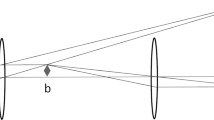Abstract
Before I begin my discussion of the cognitive limits of science, I would like to outline briefly what it is that I shall not be here concerned with. As to origins, I will not spend much time in tracing the historical roots of science in ancient civilizations. And as to limits, I do not intend to consider the very real economic limits of science that arise from the fact that research has become ever more expensive and that the industrialized nations cannot increase indefinitely the fraction of their gross national product spent on financing science. Nor do I intend to discuss the physical limits that set barriers in principle to our study of the universe or of matter, such barriers as the maximum speed of light or the maximally practical kinetic energy to which elementary particles can be accelerated. Moreover, I do not intend to consider the social and political limits that have recently arisen from what appear to be flourishing anti-science movements in the industrialized nations. And as for the future, I will not try to identify the areas in which I think great discoveries still remain to be made, or to put forward any kind of specific predictions. Instead, I intend to discuss three cognitive limits of science which have come into view in this century: a semantic limit, a structural limit, and a subjective limit. Since the existence of these limits forms a barrier to an indefinite progress of our knowledge of nature, it is likely that the science of the future will be different from the science of the past.
Access this chapter
Tax calculation will be finalised at checkout
Purchases are for personal use only
Preview
Unable to display preview. Download preview PDF.
Similar content being viewed by others
Editor information
Rights and permissions
Copyright information
© 1988 Kluwer Academic Publishers
About this chapter
Cite this chapter
Stent, G. (1988). Cognitive Limits of Science. In: Ullmann-Margalit, E. (eds) Science in Reflection. Boston Studies in the Philosophy of Science, vol 110. Springer, Dordrecht. https://doi.org/10.1007/978-94-009-2957-9_3
Download citation
DOI: https://doi.org/10.1007/978-94-009-2957-9_3
Publisher Name: Springer, Dordrecht
Print ISBN: 978-90-277-2713-8
Online ISBN: 978-94-009-2957-9
eBook Packages: Springer Book Archive




